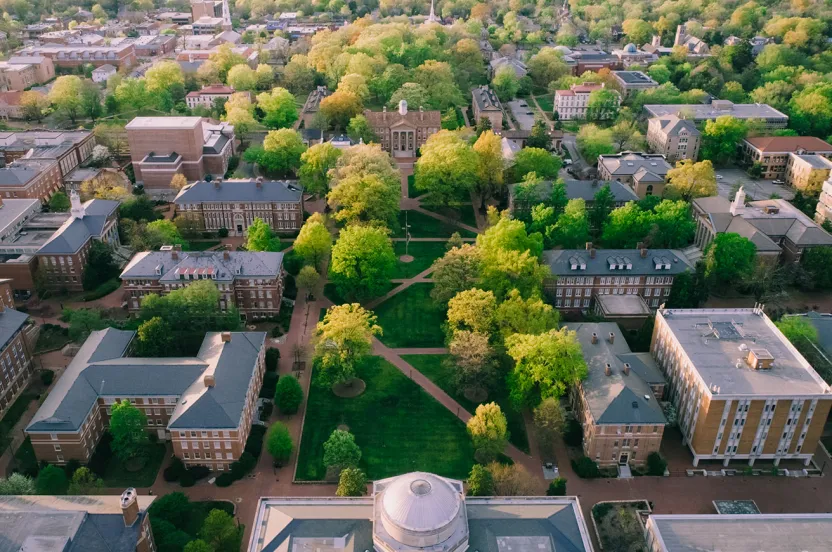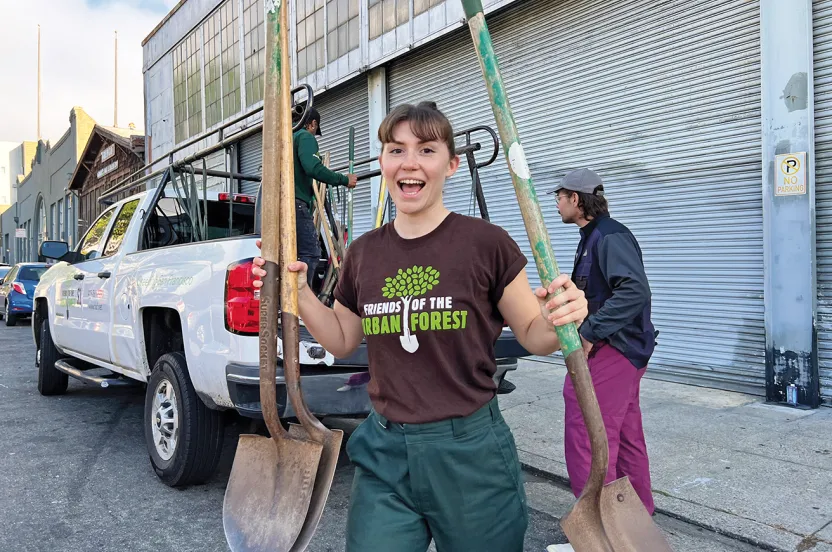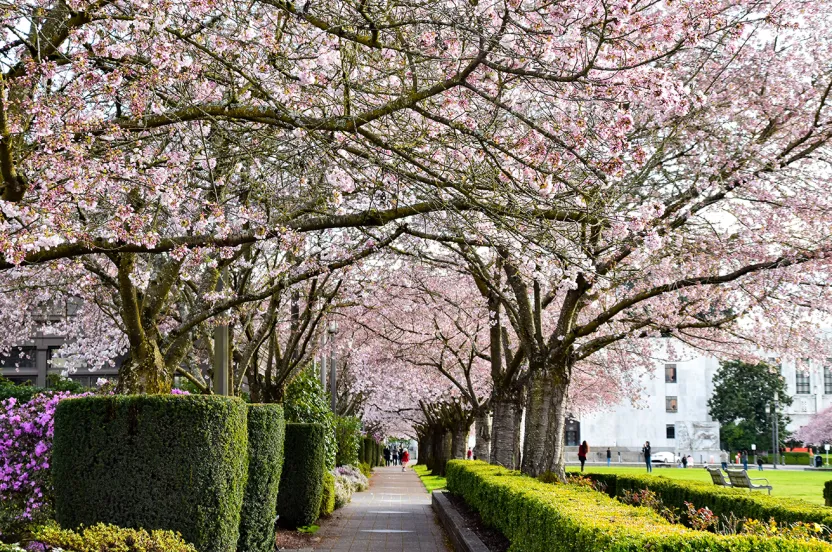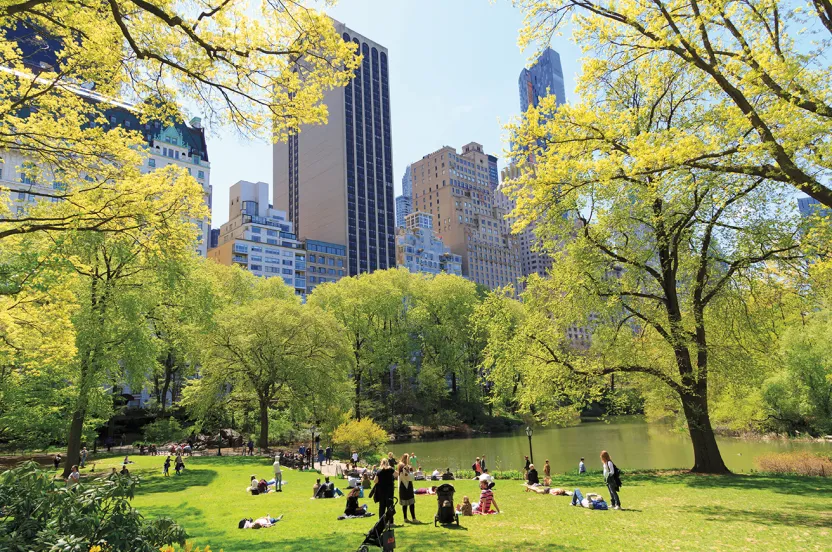Turning Grayscapes to Greenscapes in Bridgeport
A community in Connecticut used its voice and shovels to grow change.
Although it’s known as the “Park City,” a quick scan of the intertwining streets of Bridgeport, Connecticut tells a different story. It’s one where majority-minority, low-income communities, especially those found on the eastern side of the city, lack tree coverage.
It gets blistering hot in the summer. 100+° Fahrenheit-surface-temperature hot.
Some families can’t afford to pay electricity bills.
Greenspace is at a premium.
Relief is out of reach for residents.
Not only does the city of Bridgeport have the lowest tree canopy in the state, but the east side has the lowest tree count in the entire city. Tree canopy cover is scant — 5% — with threats of damaging storms or emerald ash borer always looming.
The lack of trees also diminishes air quality, creating the perfect storm for respiratory conditions, like asthma, which is prevalent in this community, particularly in children.
But the story of Bridgeport is far from one of yet another city that has fallen into disrepair, as residents came together to rebuild the social fabric, health, and vitality of the area with the help of trees.
The city has strong local leaders, like Christina Smith, President & CEO of the Arbor Day Foundation’s planting partner Groundwork Bridgeport, who’s prioritizing planting trees not just in the community, but with the community.

Engaging the next generation of tree planters
For Christina and her team, planting trees isn’t the only goal. She hopes to engage residents, especially youth, to get their hands in the dirt and see how they can grow change.
Groundwork Bridgeport hired a team of youth and trained them to provide ongoing care for trees in the community. Originally called the Tree Stewards, this group of teens quickly renamed themselves the Tree Patrol and set to work. They serve the neighborhoods where they live, monitoring the trees, providing basic care, and connecting with their neighbors. Their “patrolling” is improving each tree’s longevity while giving them valuable experience and a good wage.
“It’s not just about the number of trees planted per day. It really is about survival,” said Christina.
The right trees in the right places
There’s more to planting trees than planting trees.
“We're layering data and technology to be able to find even down to the specific city block of where trees are needed the most,” said Amy Lester, Ventures Project Coordinator, Arbor Day Foundation
With a NatureQuant NatureScore of 10, the east Bridgeport neighborhood was flagged as desperately needing trees. NatureQuant is a tech and research company that helps the Arbor Day Foundation determine where trees are needed most in urban spaces. The NatureScore is a rating on a scale of 0–10, using public data, satellite imagery, and image-recognition software to determine where green spaces are lacking.
“Without the support of the Arbor Day Foundation, we wouldn’t be doing what we’re doing to this level. We’re planting trees in strategically more impactful ways. We're planting them more effectively and with greater care,” said Peter LeDuc, Land Steward, Groundwork Bridgeport.

The most recent project that happened in partnership with the Arbor Day Foundation was a tree giveaway. Fifty trees were distributed to residents of the neighborhood identified by NatureQuant.
Residents showed their support for the effort by coming out in full force. They know what the trees mean to their community. To their health. To the next generation of those growing up in east Bridgeport.
“This type of giveaway project is the definition of community empowerment. Bringing people out, letting them choose where these trees are going to go in their own properties and in their own neighborhoods, that’s how we reforest Bridgeport,” said Chadwick Schroeder, Sustainability Manager, City of Bridgeport, CT.
Community in action
With recent support for tree planting, Christina has more plans for the future. Developing pollinator pathways and planting “cool corridors” to reduce urban heat are just a couple of action items on her list. From there, the possibilities grow even more. “When you show care and people see other people showing care, it becomes contagious,” said Christina.
Bridgeport is a great example of turning a need for trees into an opportunity for a community to thrive.




